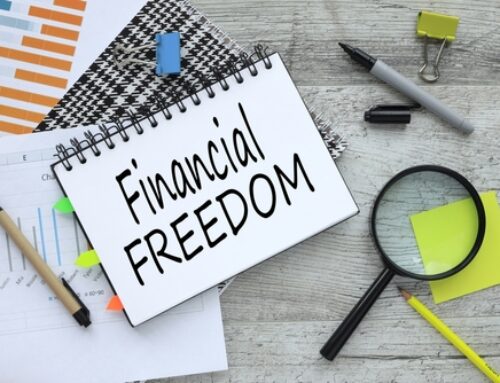Mortgage problems can impact your life in a range of ways, and solving them can be a daunting challenge. For some in facing financial difficulty in Ohio, Chapter 13 bankruptcy may be a solid answer to financial troubles. However, before filing, understanding Chapter 13 bankruptcy is crucial to the success of the process.
If you are exploring filing for Chapter 13, the experienced bankruptcy attorney at Fesenmyer Law Office can help. Call 614-228-4435 (Columbus), 937-222-7472 (Dayton), or 877-654-5297 (Cincinnati) today to get the answers you deserve.
Understanding Chapter 13 Bankruptcy
Chapter 13 bankruptcy is one of the most popular types of bankruptcy for non-commercial consumers. Known as a restructuring type of bankruptcy, Chapter 13 resolutions typically involve restructurings and payment plans, which ultimately allow parties to hold onto their assets. This is in contrast to another popular type of bankruptcy, Chapter 7, which offers a fresh start to those who qualify, but calls for the liquidation of any assets that are not exempt.
How Chapter 13 Bankruptcy Can Help Stop Foreclosure
Bankruptcy is an effective method of stopping foreclosure actions temporarily. Once a person files for chapter 13, all debt collection actions against that person generally must come to a halt, including foreclosure actions, no matter how far along they are. Because of this stay on collections processes, Chapter 13 can be an effective method of relieving the financial pressure that comes with foreclosure.
Keep in mind that the stay against all collections is only temporary and does not mean that the underlying financial issue has been handled. Instead, the stay allows the court and the parties to seek a suitable, legal resolution to the mortgage problem.
Eligibility for Chapter 13 Bankruptcy
Chapter 13 has strict eligibility requirements you will need to meet before filing. Two of the most important are income and debt requirements. In order to file for Chapter 13, a party must meet certain requirements regarding the amount of income they have to pay toward their debts and the amount of secured and unsecured debt they have. Secured debt consists of debt that is backed up by assets or collateral. Unsecured debt, on the other hand, is based on credit and backed up by no assets. Credit cards, for example, are typically unsecured debt — except for secured credit cards, which are often secured by a cash deposit.
Regarding income, bankruptcy petitioners must have verifiable income to obtain a Chapter 13 bankruptcy. Verifiable income is income of which there is a record, such as:
- W2 income
- 1099 self-employment income
- Investment income
- Business income
Ultimately, the bankruptcy repayment plan will be based primarily on their income, as well as the debt load involved.
Other eligibility requirements include a credit counseling class that all petitioners must take within 180 days of filing for bankruptcy. Additionally, any person who has filed bankruptcy previously must wait a certain number of years before they can file again.
The Chapter 13 Bankruptcy Process
The Chapter 13 bankruptcy process begins with a borrower who is unable to service their debt, which would be mortgage debt for property owners. You will first need to determine whether you are eligible for Chapter 13. If you are, you can begin the process.
However, those considering Chapter 13 should consult with an experienced attorney as soon as possible. The earlier an attorney is involved, the more favorable your Chapter 13 proceedings are likely to be.
Generally, all Chapter 13 bankruptcies involve a similar process that requires creating the following:
- A list of creditors and the full amount of each of their claims
- A list identifying the source and amount of a debtor’s income
- A list of the debtor’s property
- A list of the debtor’s monthly living and other expenses
Regarding expenses, the list should contain items such as food, shelter, clothing, utilities, transportation, and even taxes. Keep in mind that married petitioners must include information about their spouse’s finances and assets, even when only one spouse is filing for bankruptcy.
From there, a trustee can review and verify all information presented to them as well as manage the overall procedure.
Benefits Beyond Foreclosure Prevention
Besides preventing foreclosure, Chapter 13 bankruptcy has other potential benefits for filers as well. For example, you may be able to restructure other secured debts in addition to the mortgage of the primary residence during Chapter 13. Restructuring should result in payment terms that are sustainable and satisfactory to both the lender and the borrower.
Types of secured debt that might be involved in a bankruptcy include:
- Auto loans
- Secured credit cards
- Mortgages of properties other than the primary residence
- Home equity loans
- Secured personal loans
Each of these types of debt may be eligible for restructuring in Chapter 13 proceedings, which can result in more favorable and sustainable payment terms for borrowers in financial trouble.
When working with Fesenmyer Law Office you will be working directly with the attorney who will be handling your case. We will walk you through every step of the process.
When to Consider Chapter 13 Bankruptcy
In most cases, the best time to consider any type of bankruptcy action in Ohio is before financial consequences kick in. For example, a homeowner who is having difficulty with their payments and cannot see a way out should consider filing for Chapter 13 before they receive a foreclosure notice or even before they go into default on their loan.
Ultimately, each case is different. Everyone has unique needs that dictate when they should consider filing for bankruptcy. In all cases, however, delaying can complicate matters. The sooner you consult bankruptcy attorney to explore this solution, the better your outcome may be.
Explore Bankruptcy Options with Our Seasoned Legal Team Today
If you are facing serious mortgage issues in Ohio, Chapter 13 may be a powerful solution for your circumstances. The experienced bankruptcy lawyer at Fesenmyer Law Office can evaluate your circumstances and determine whether this option may be right for you.
Facing foreclosure? Trust only a top bankruptcy firm in Ohio with your future. Contact Fesenmyer Law Office at 614-228-4435 (Columbus), 937-222-7472 (Dayton), or 877-654-5297 (Cincinnati) to speak with an affordable bankruptcy lawyer who can fight for you today.





